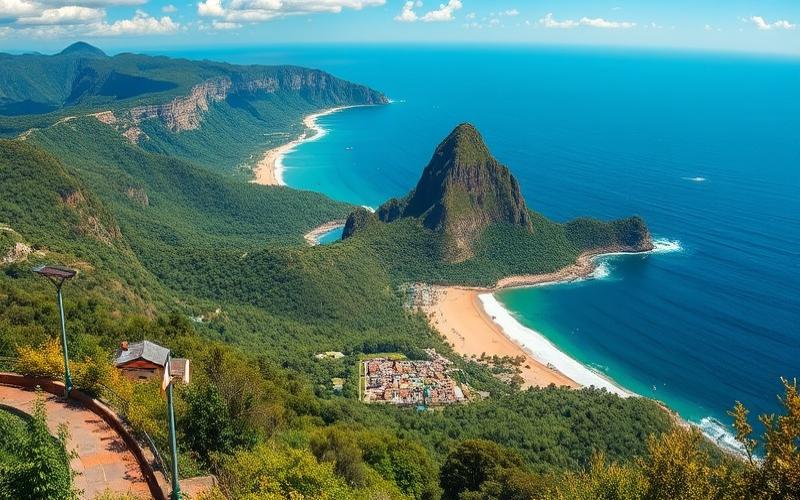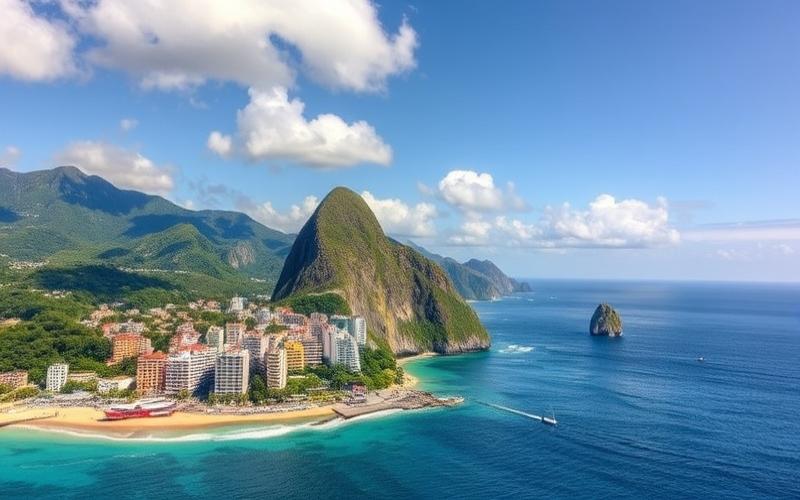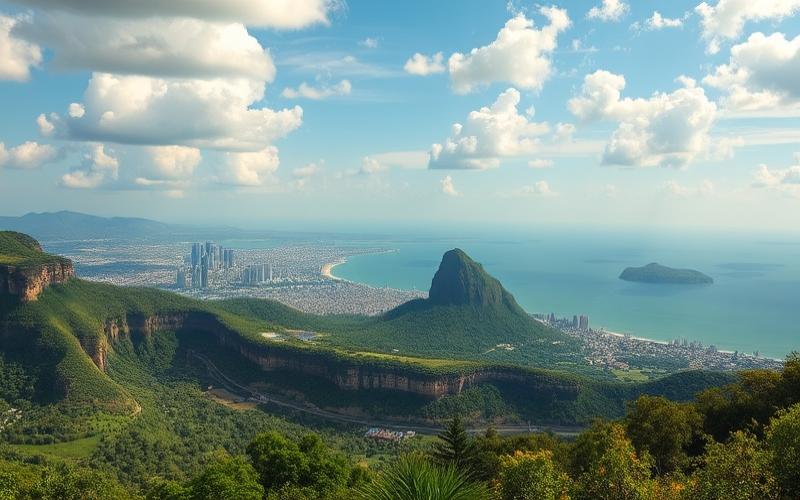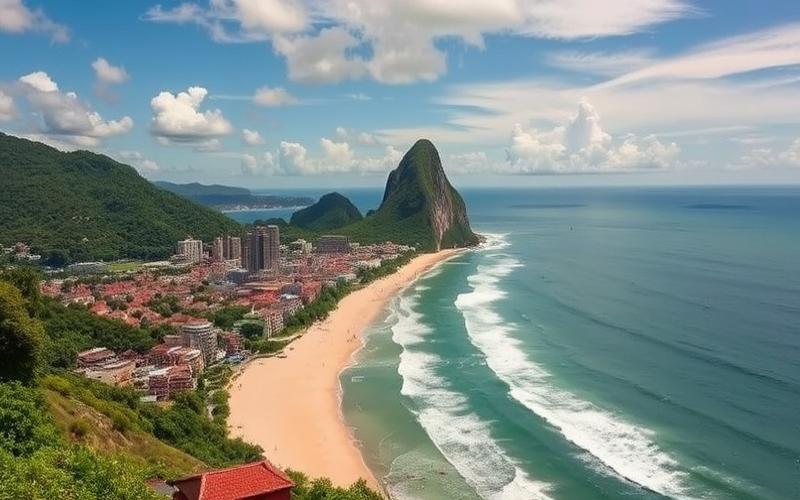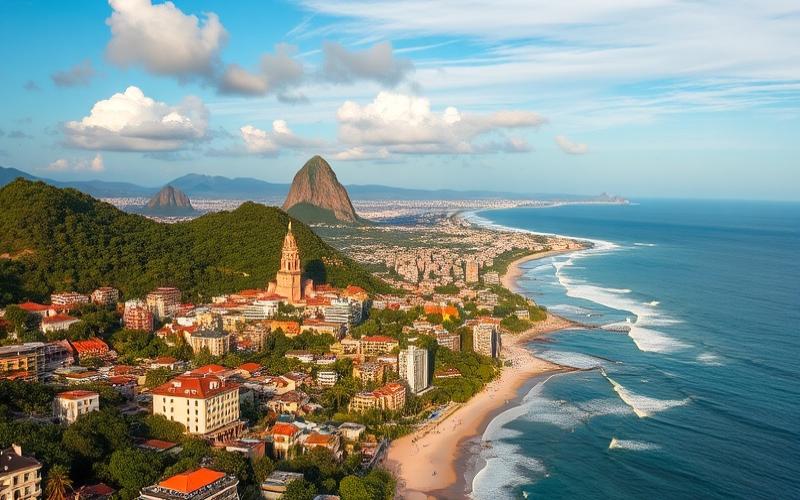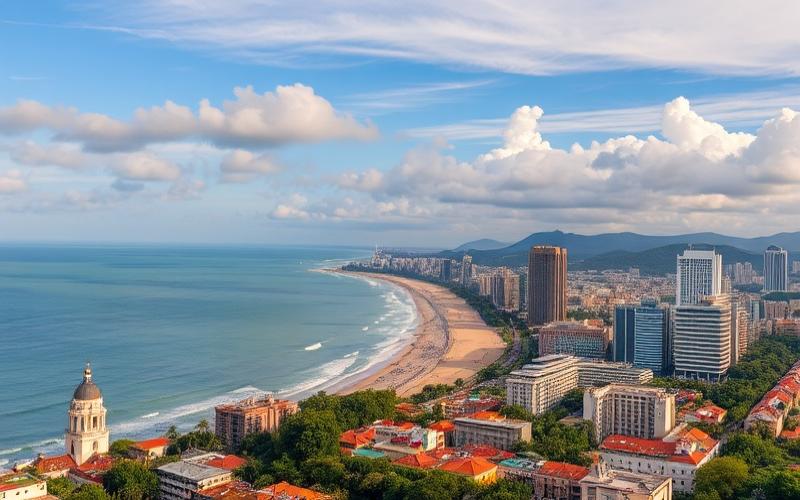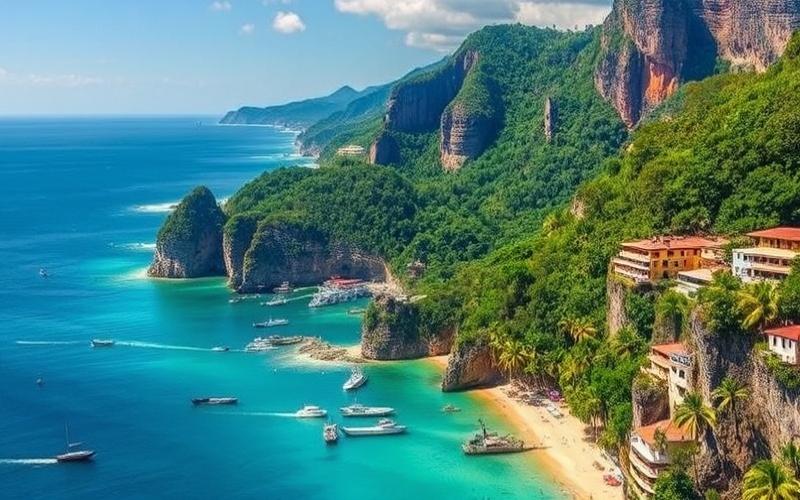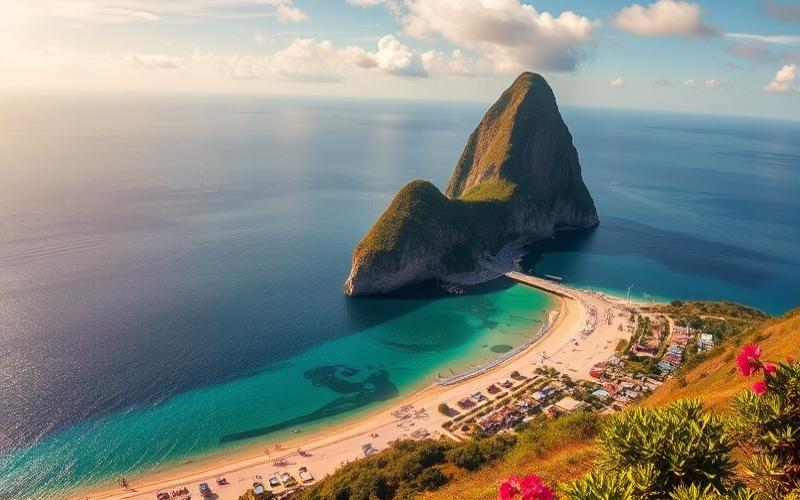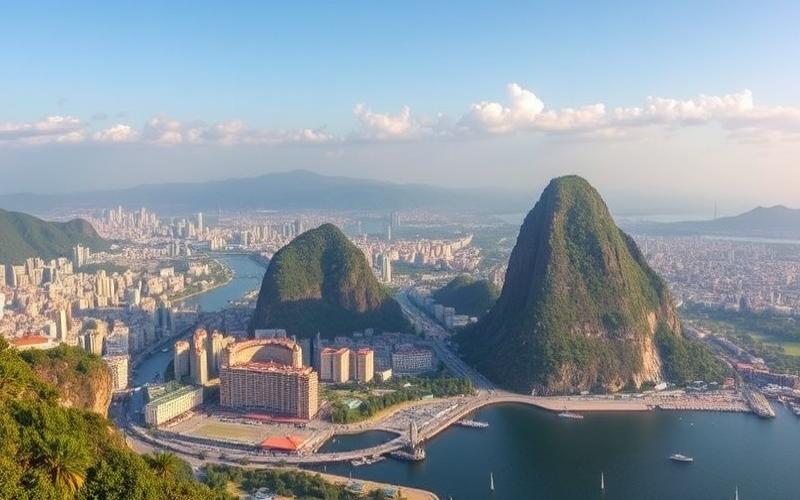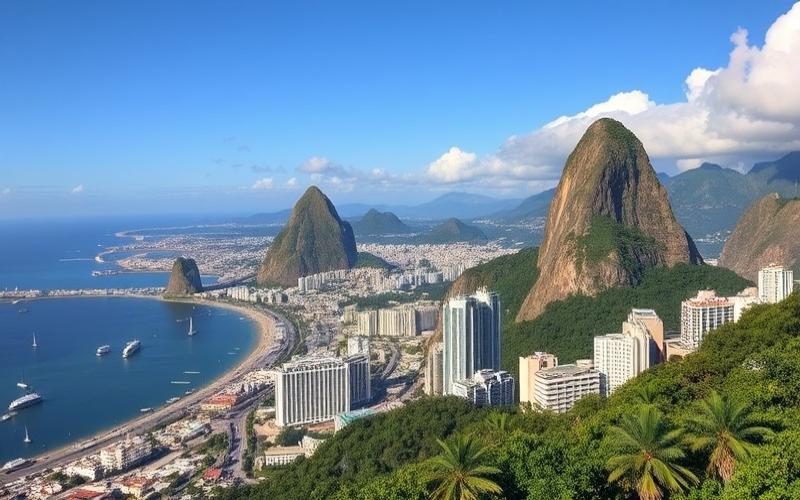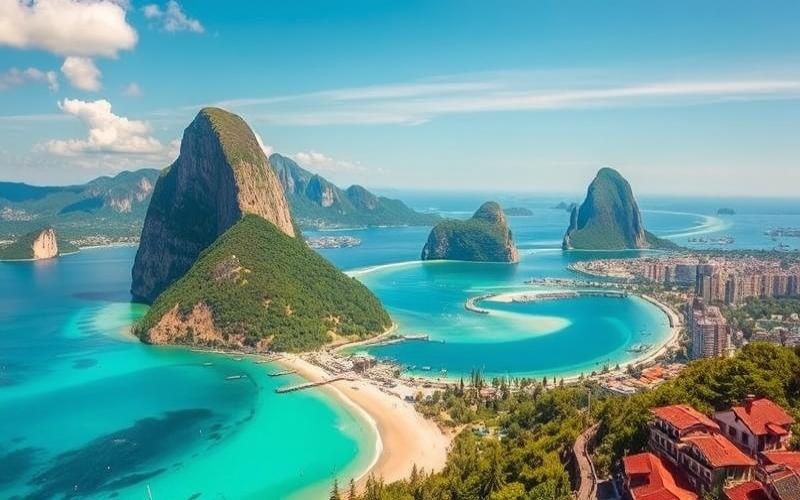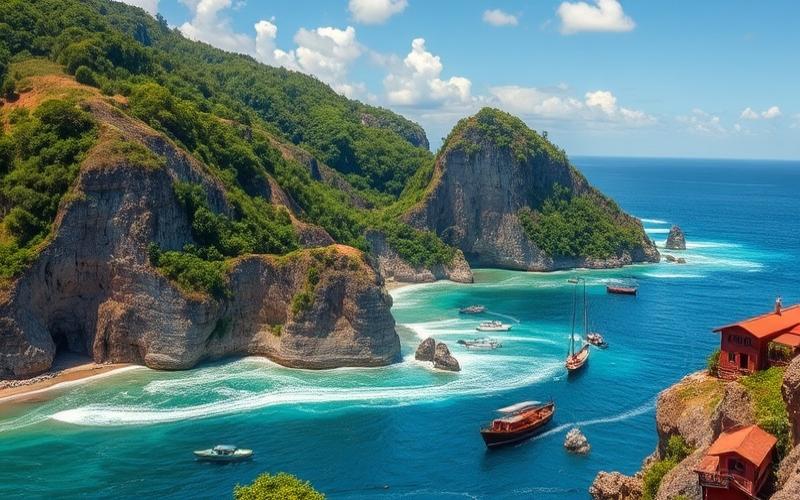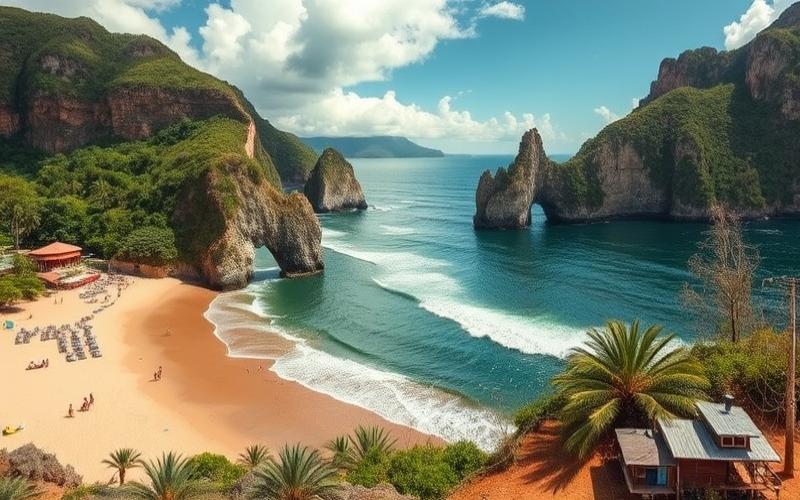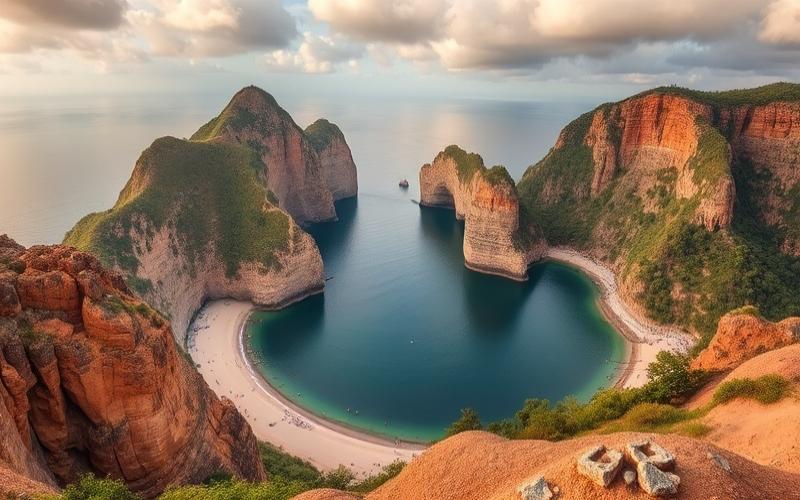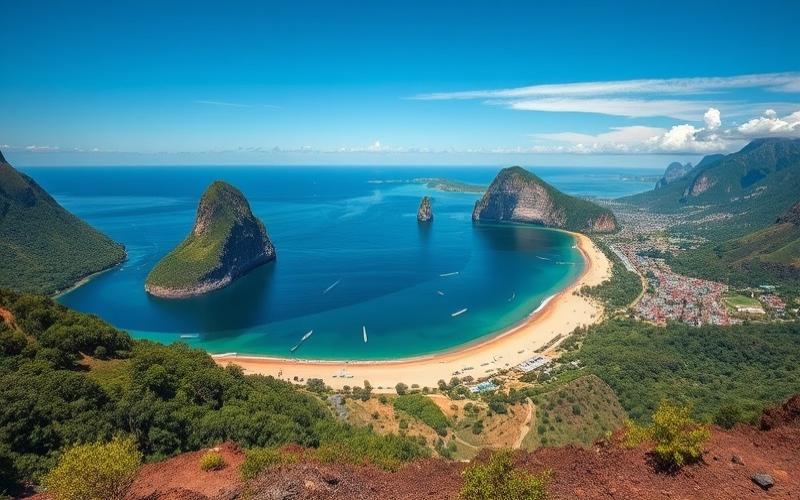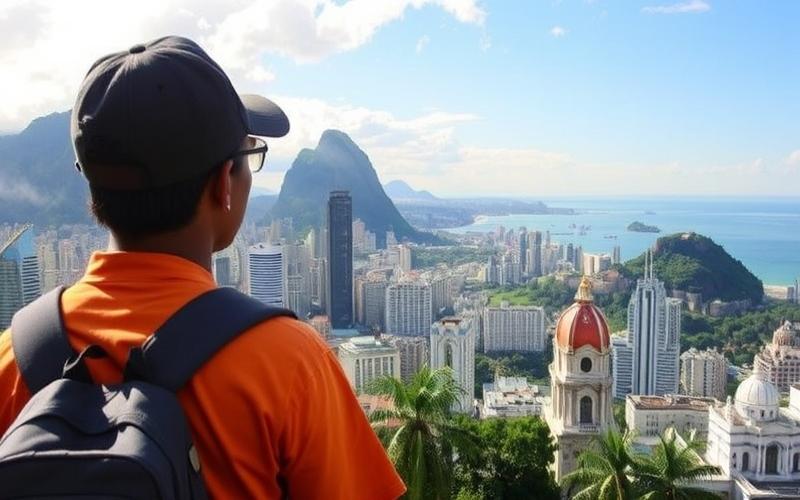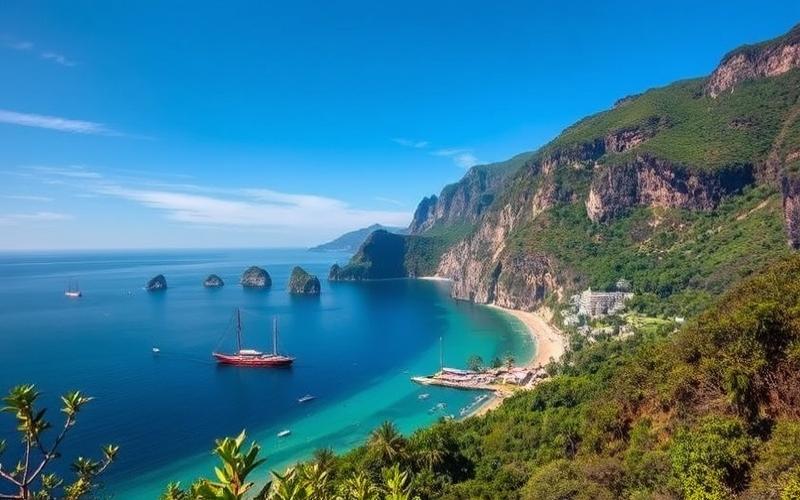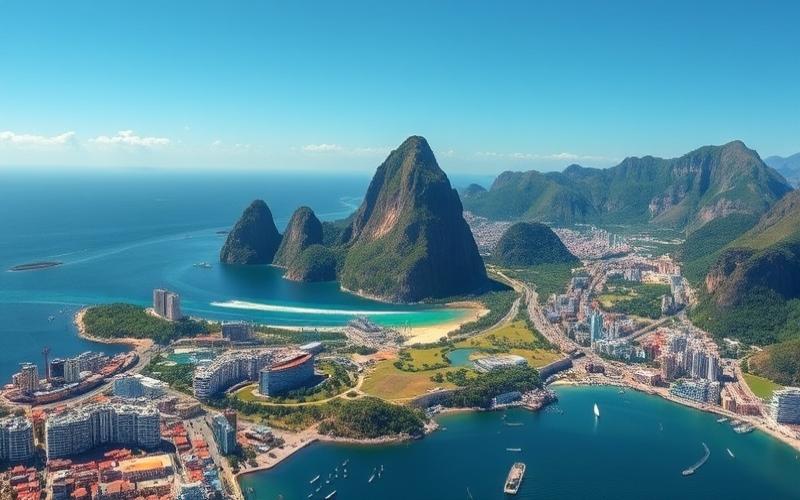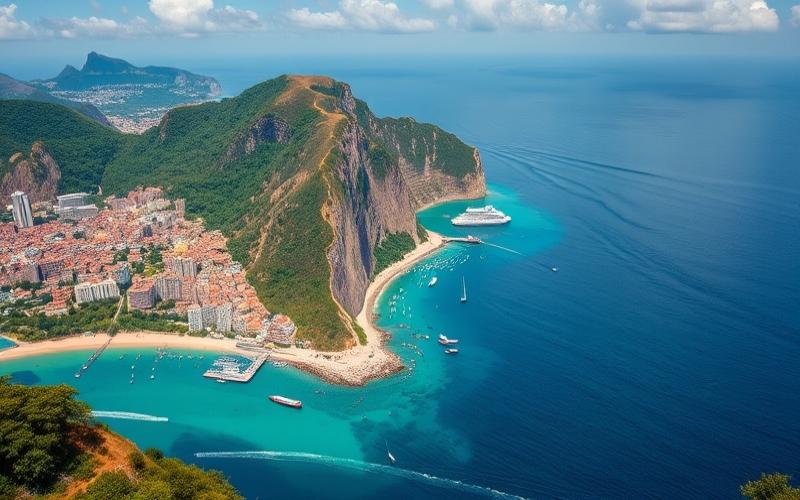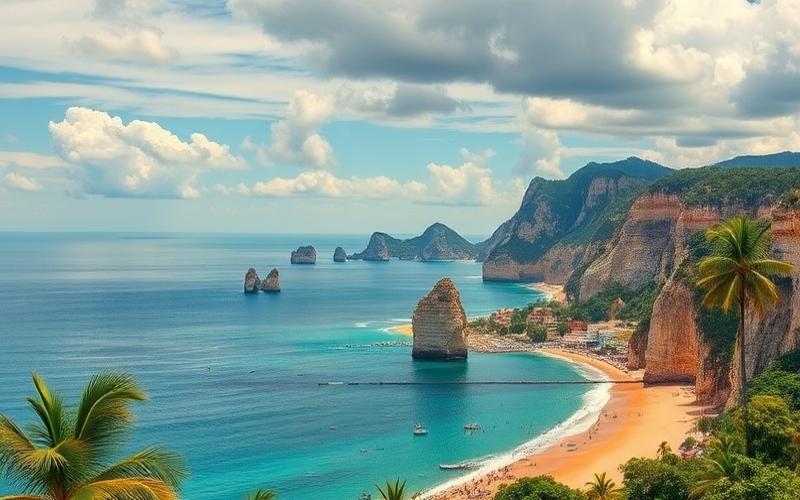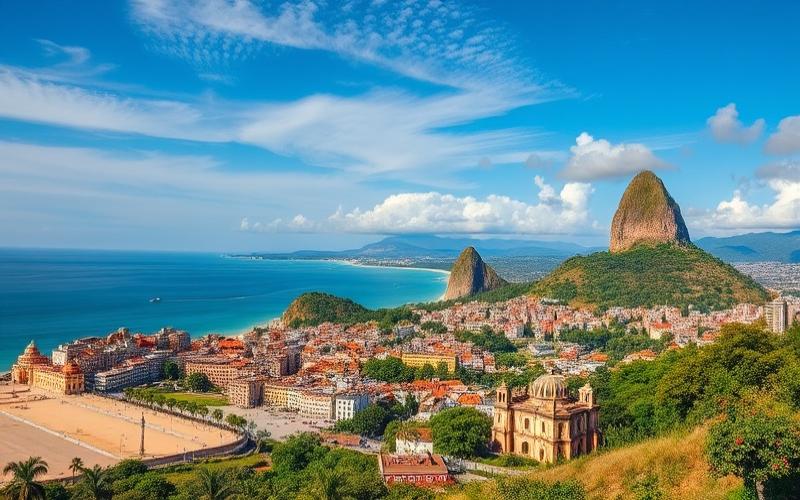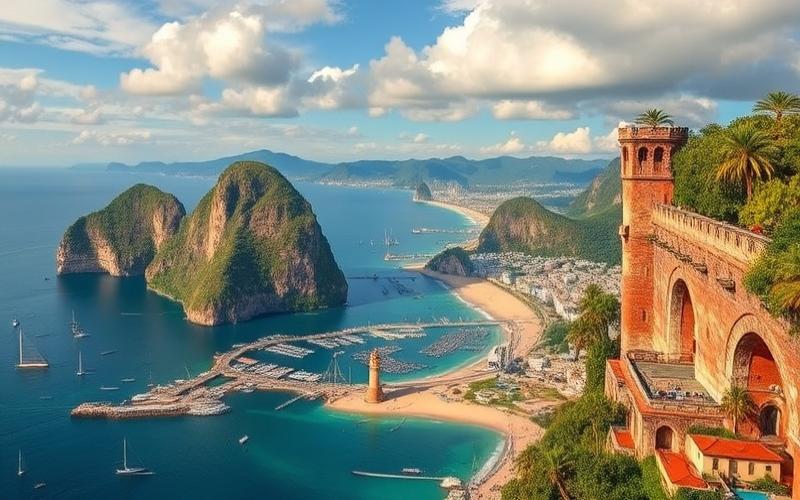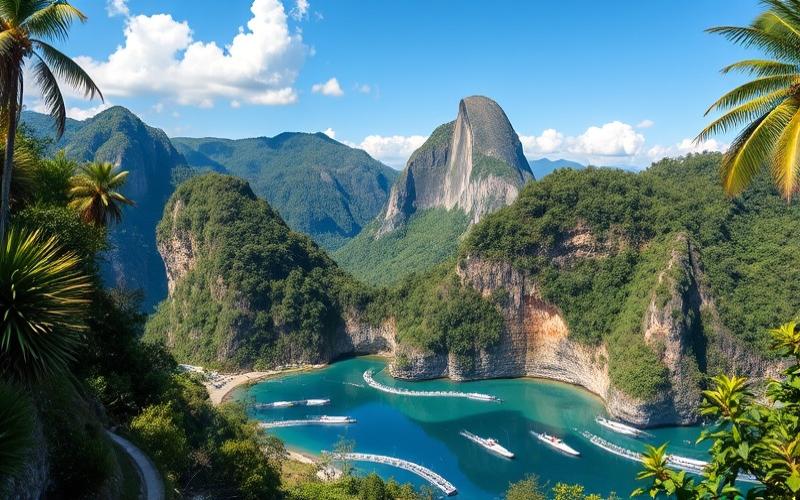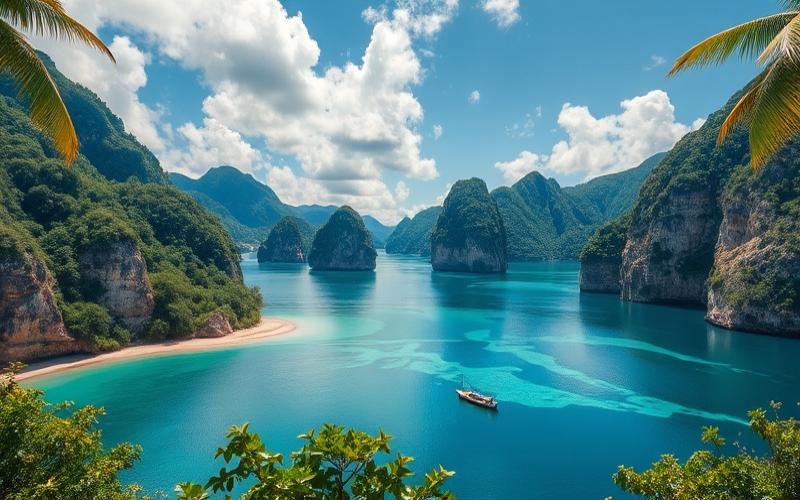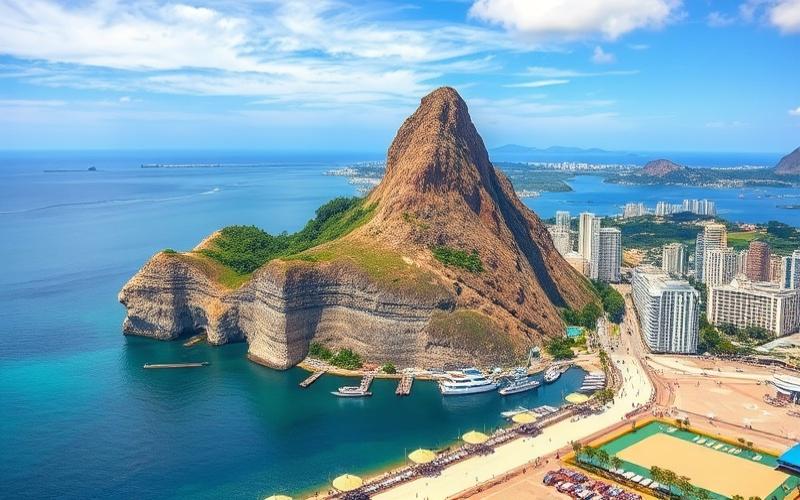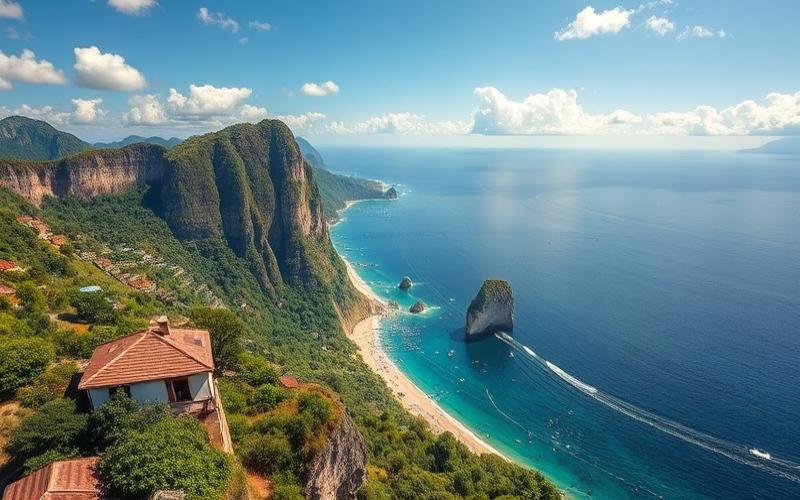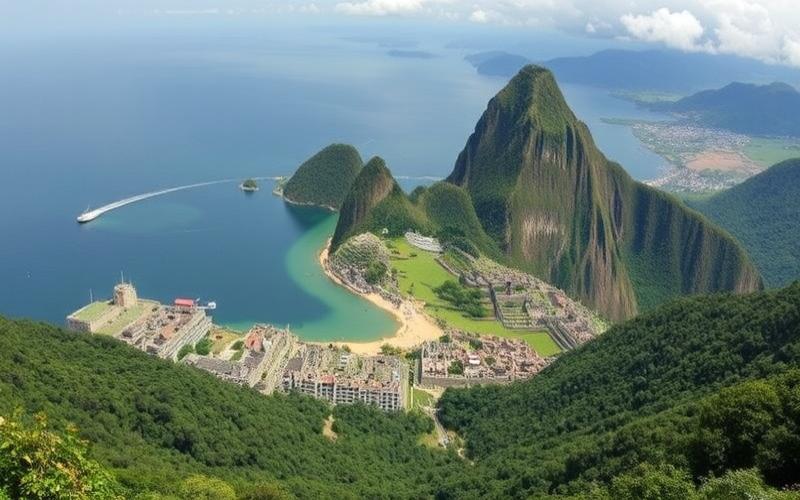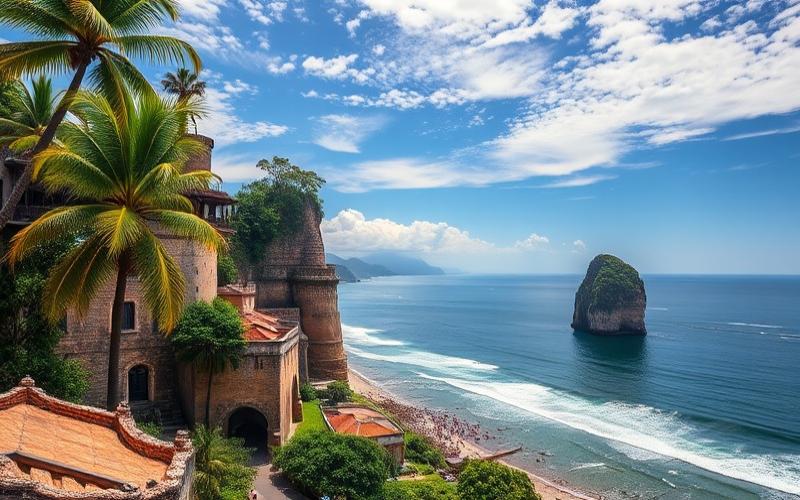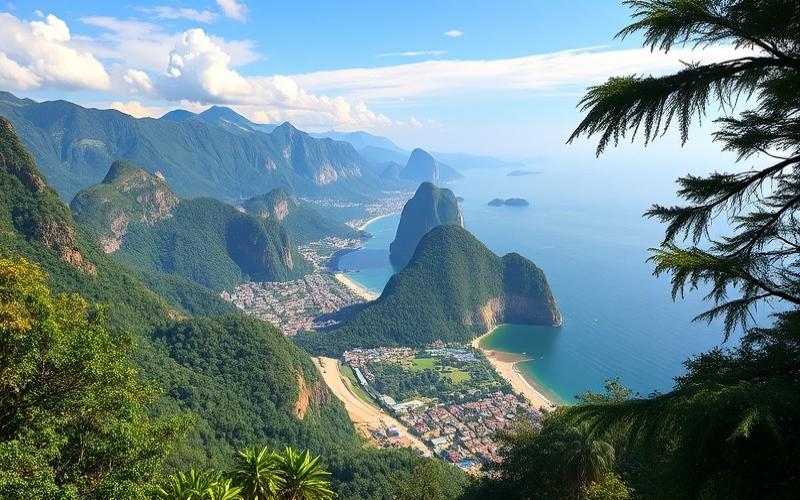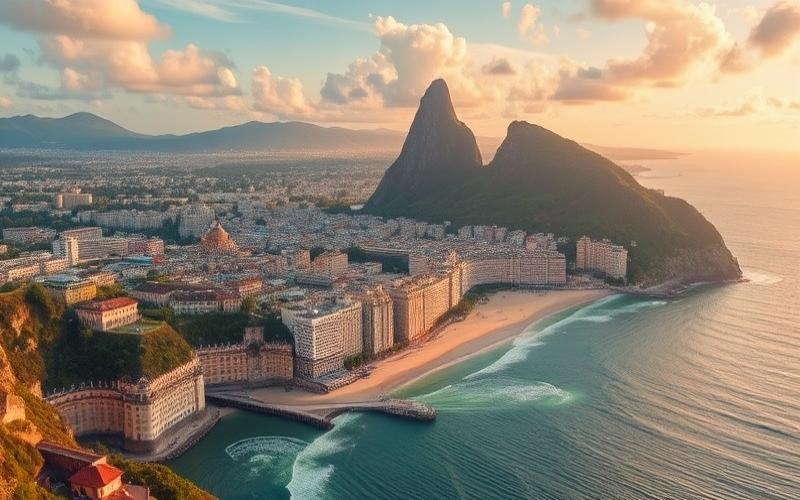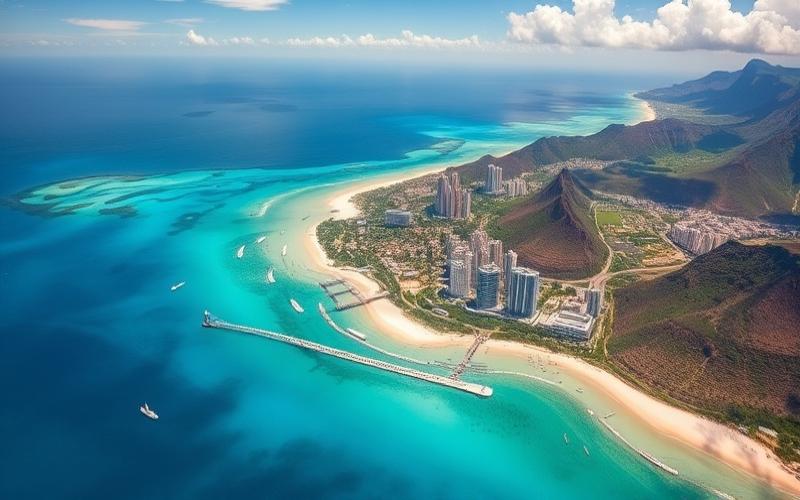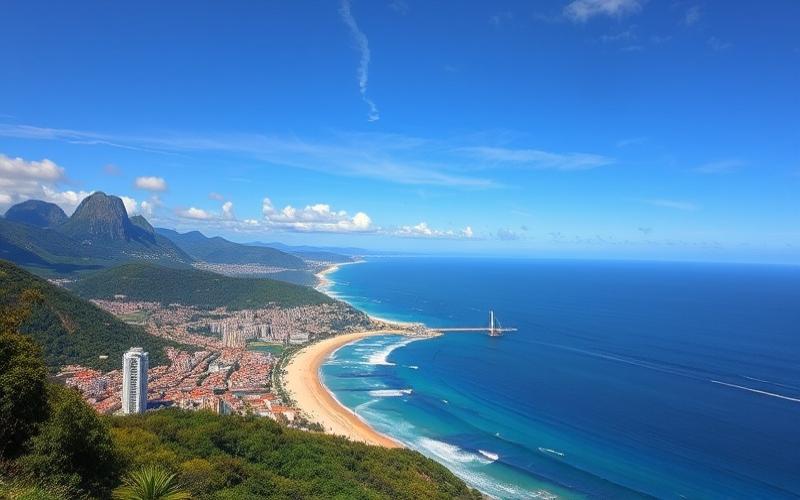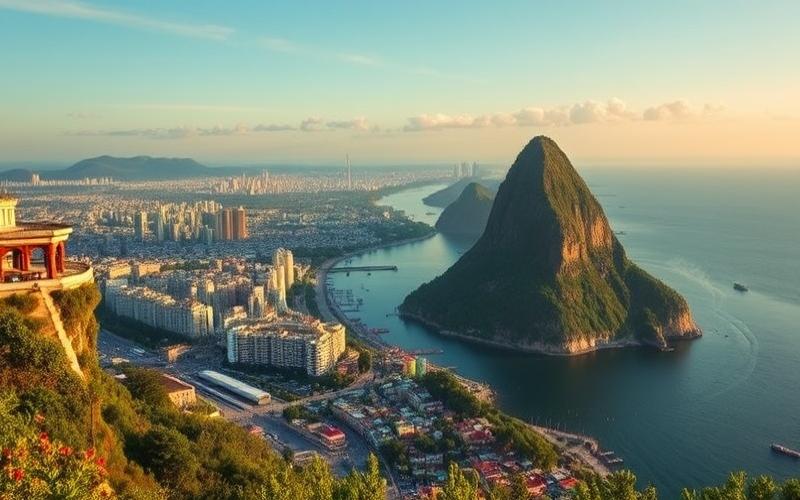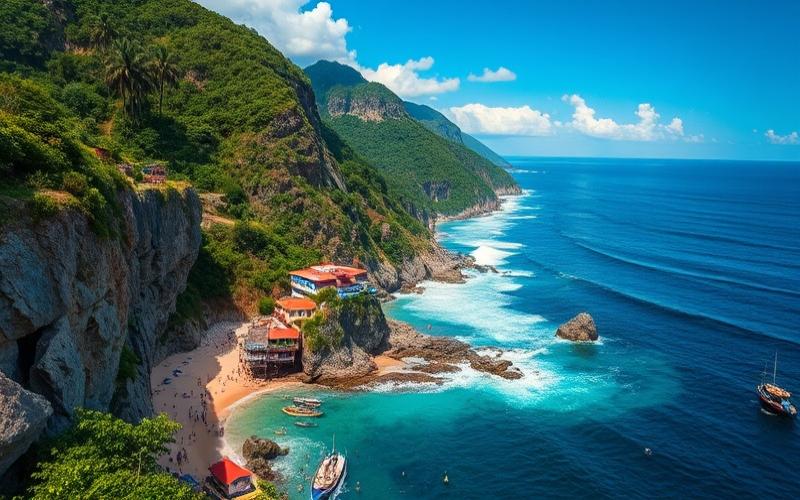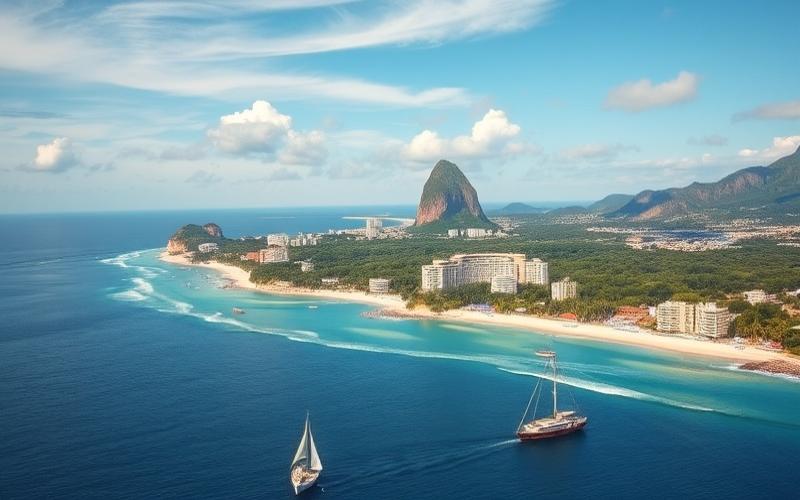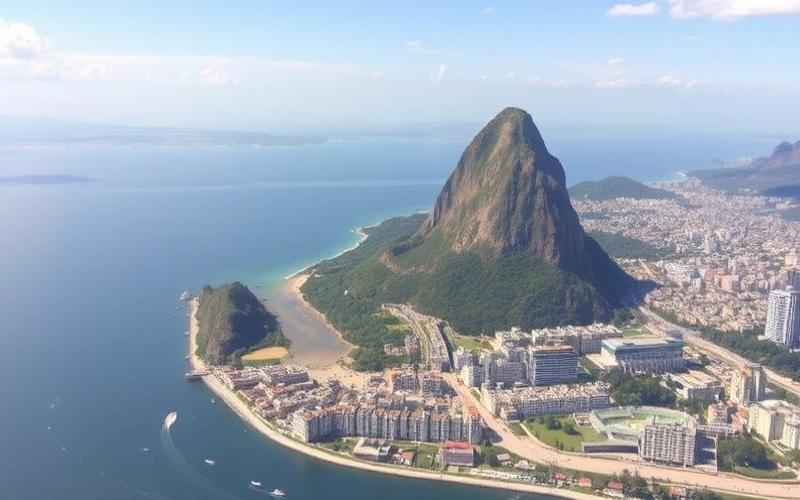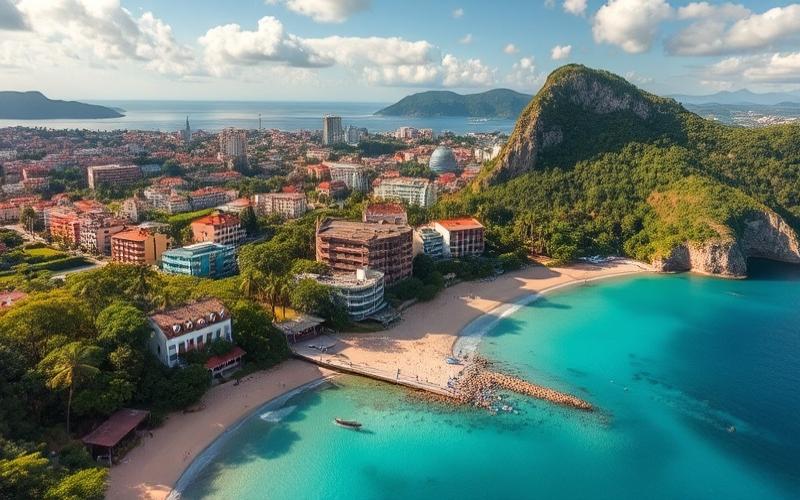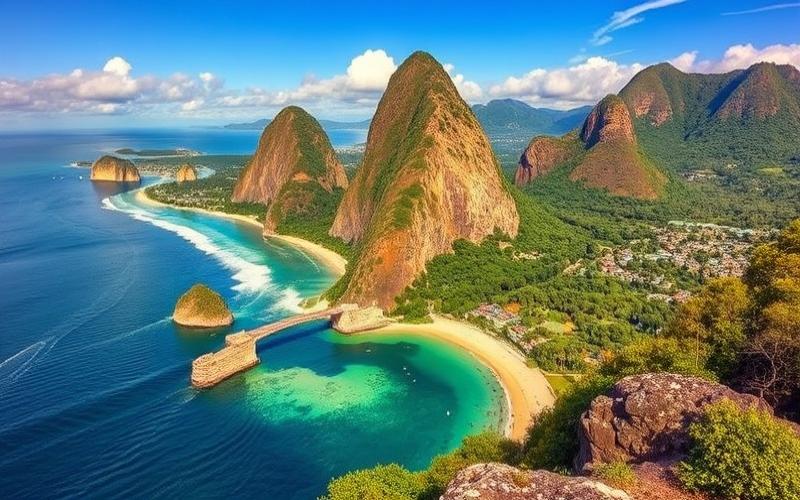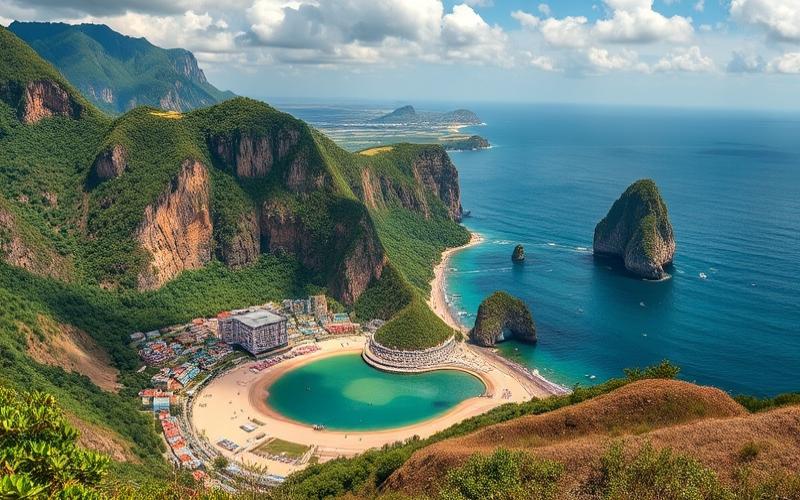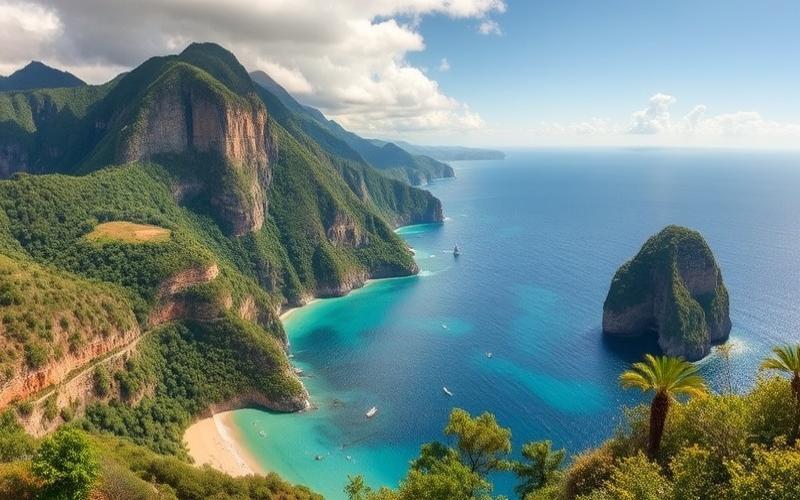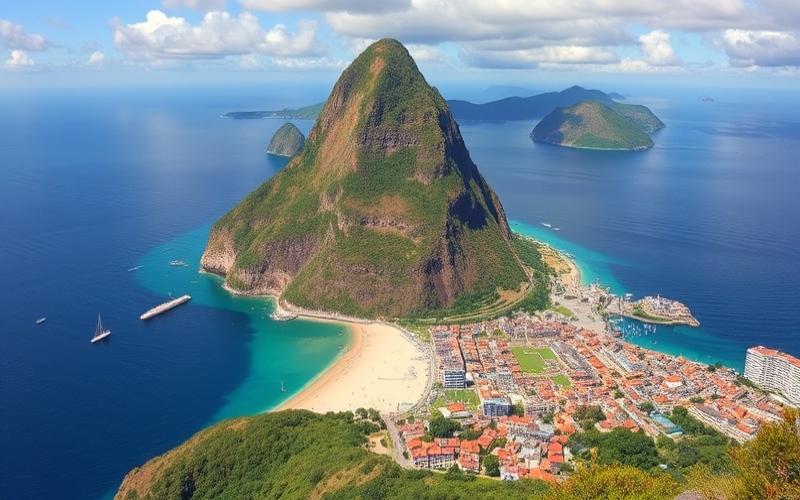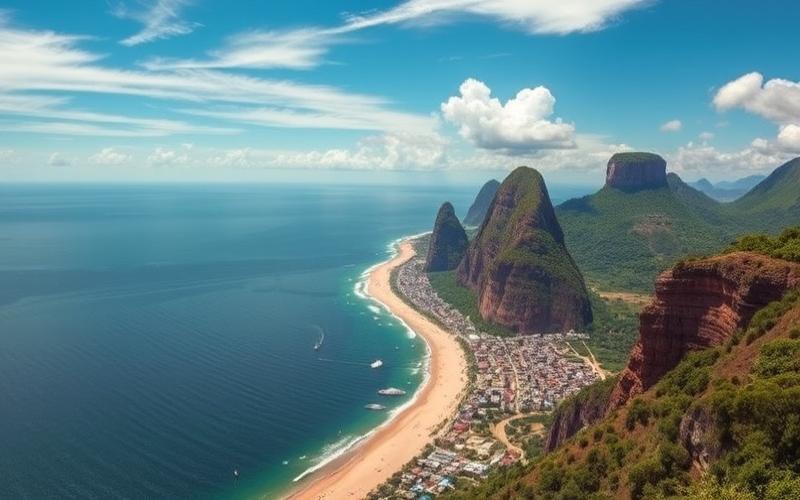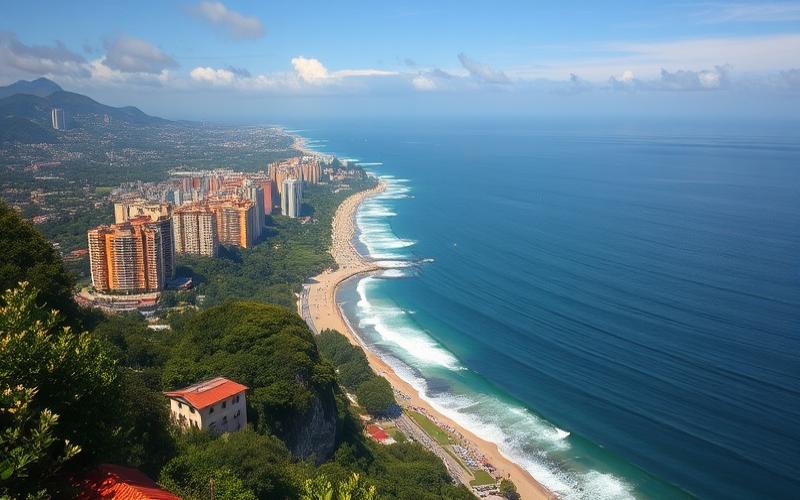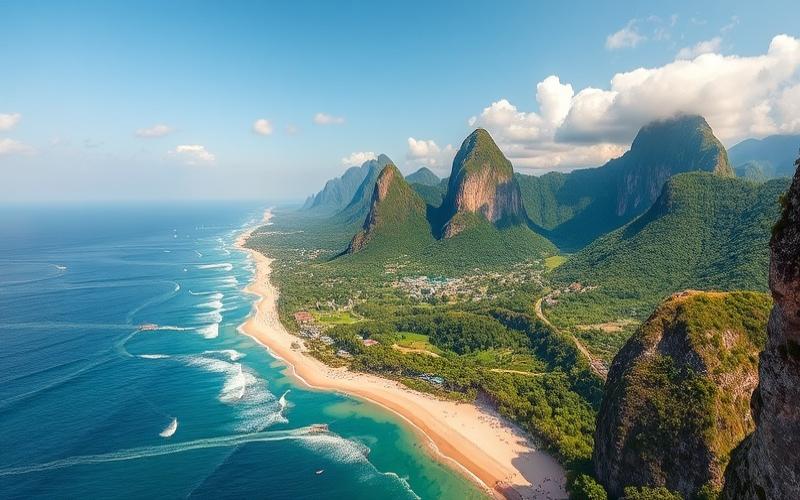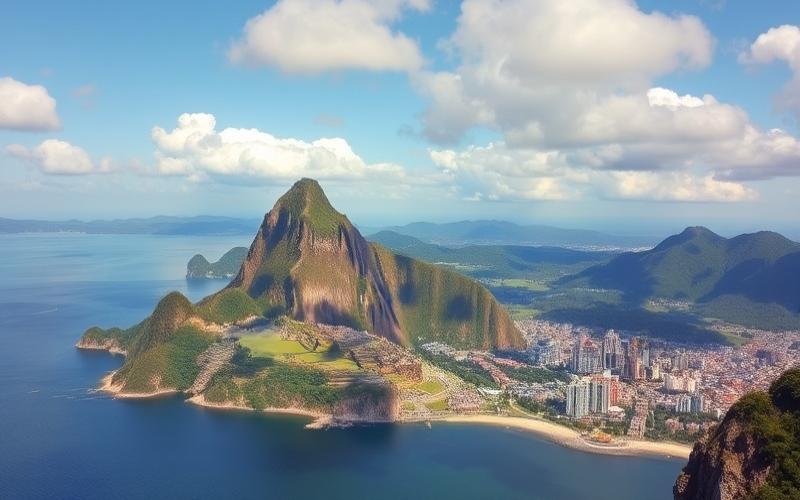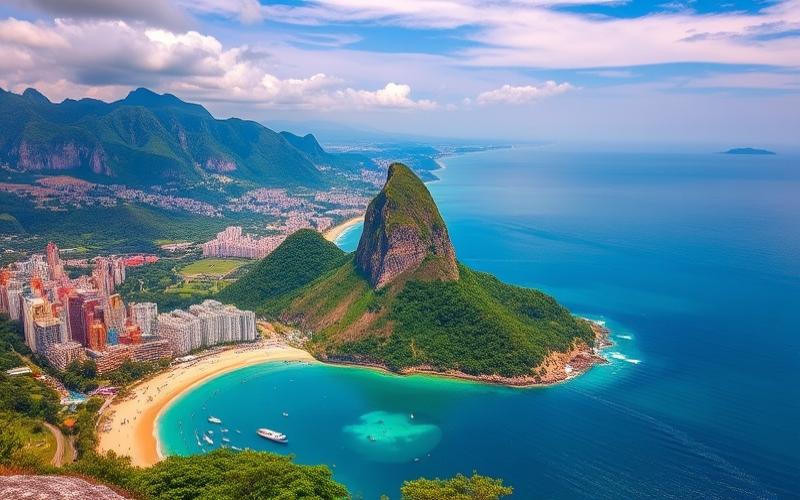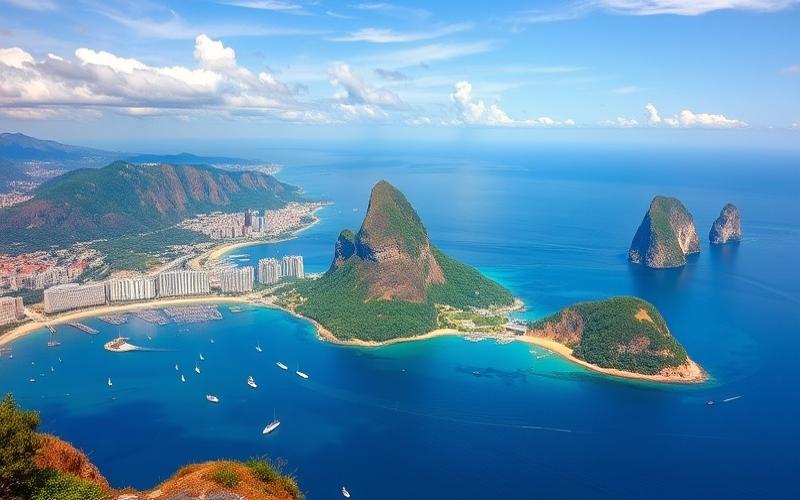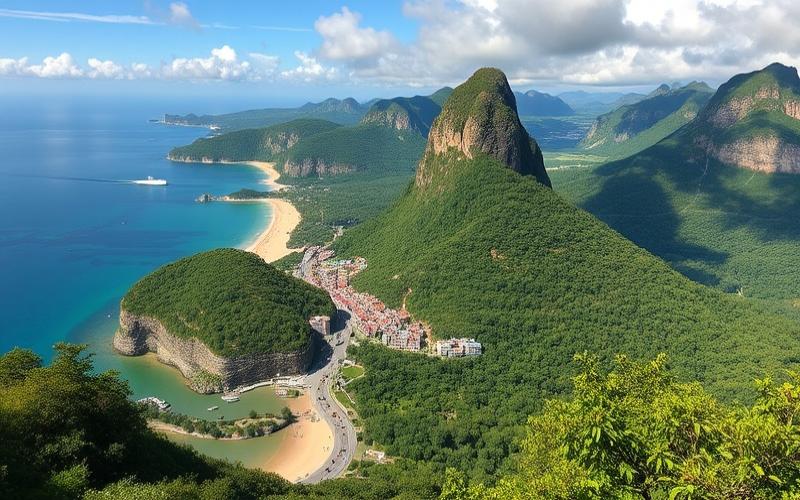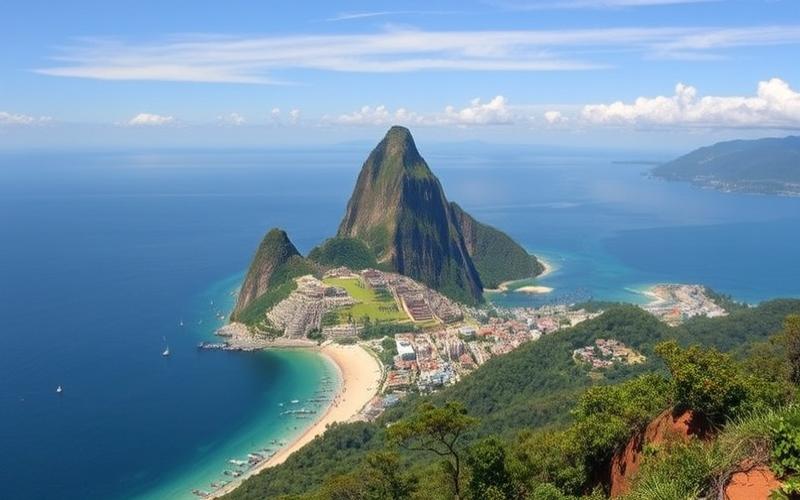
 Published on and written by Cyril Jarnias
Published on and written by Cyril Jarnias
Brazil’s tourism sector, with its unique cultural and natural diversity, presents an enticing opportunity for investors looking to enter the hospitality industry. However, establishing operations requires navigating a complex set of local and national regulations. From obtaining necessary permits to understanding environmental laws, through compliance with health and safety standards, each step must be carefully planned to ensure peaceful operations that meet current standards.
Whether you’re considering opening a small inn in the mountains of Minas Gerais or a luxury hotel in Rio de Janeiro, understanding the essential administrative procedures is crucial to avoid legal pitfalls and maximize your project’s success.
Procedures for Tourist Accommodation in Brazil
To bring tourist accommodation into compliance with Brazilian regulations, owners must follow several key steps and ensure they meet all legal, tax, and administrative obligations.
Key Steps for Compliance of Tourist Accommodation in Brazil:
- Verification of Rental Possibility
- Ensure the condominium or building regulations permit seasonal rentals.
- Practical example: some buildings explicitly prohibit short-term rentals, even if federal law allows it.
- Obtaining Necessary Permits and Licenses
- Registration of commercial activity with the city hall (Cadastro Nacional de Pessoa Jurídica – CNPJ, if regular activity).
- Application for an alvará de funcionamento (operating permit), issued by the local city hall.
- Registration with local health surveillance (Vigilância Sanitária) to certify compliance with hygiene standards.
- Compliance with Safety and Hygiene Standards
- Compliance with fire safety standards (fire extinguishers, evacuation plans, emergency exits).
- Adherence to accessibility and maintenance rules.
- Regular maintenance of sanitary facilities and electrical equipment.
- Tax Obligations
- Declaration of rental income to the Receita Federal (Brazilian tax authority).
- Payment of Income Tax (IRPF for individuals, IRPJ for legal entities).
- Payment of municipal service tax (ISS – Imposto Sobre Serviços).
- Administrative Procedures with Local and National Agencies
- Mandatory registration with Embratur (Brazilian Tourism Institute) for all tourist accommodations.
- Registration with Cadastur (official registry of the Ministry of Tourism), a necessary condition to legally operate the business.
Summary Table of Main Procedures:
| Procedure | Competent Authority | Required Documents/Actions |
|---|---|---|
| Verification of Condominium Regulations | Building Manager/Administrator | Copy of regulations |
| Business Registration | City Hall, Receita Federal | CNPJ, alvará de funcionamento |
| Health Registration | Vigilância Sanitária (Municipal) | Inspection, hygiene certificate |
| Compliance with Safety Standards | Fire Department, City Hall | Compliance report |
| Registration with Embratur and Cadastur | Ministry of Tourism/Embratur | Registration file |
| Tax Declaration and Payment | Receita Federal, City Hall | Tax returns, ISS payment |
Legal Implications of Non-Compliance:
- Risk of administrative sanctions (fines, establishment closure).
- Possibility of civil lawsuits in case of accidents or harm to tenants.
- Prohibition from appearing on official platforms and loss of right to operate the business.
Role of Local Authorities and Professional Associations:
- City halls assist in obtaining permits and monitor facility compliance.
- Fire departments verify fire safety.
- Professional associations (e.g., hotel associations or seasonal rental owner associations) offer advice, administrative support, and ongoing training.
Illustrative Practical Example:
A property owner in Rio de Janeiro wants to rent their apartment through Airbnb:
- They consult the condominium regulations and obtain the building manager’s approval.
- They declare the activity to the city hall and obtain an alvará de funcionamento.
- They conduct inspections of electrical and sanitary installations, then contact the Vigilância Sanitária.
- They register with Cadastur and receive their Embratur registration number.
- They declare their rental income to the Receita Federal and pay the ISS to the city hall.
Registration with Embratur and compliance with all administrative procedures are mandatory to ensure business legality and avoid any penalties. Local authorities and professional associations are valuable resources for securing and optimizing the process.
Good to Know:
It’s crucial to obtain the operating license and register with Embratur to avoid heavy fines; advice from local associations can simplify these procedures. Complying with fire safety and hygiene standards, such as installing smoke detectors and providing evacuation plans, is essential for compliance.
Regulations for Seasonal Rentals in Brazil
Seasonal rentals in Brazil are governed by Law 8.245/1991, which defines the rights and obligations of owners and tenants for short-term leases, including the requirement to comply with internal condominium regulations and tax compliance. Foreigners can freely invest and rent, subject to compliance with local formalities.
Main Legal Requirements for Owners
- Compliance with condominium regulations: a building may prohibit or restrict seasonal rentals.
- Compliance with local standards: safety (fire extinguishers, exits), hygiene, energy diagnostics in some cases.
- Municipal registration often required in major cities (Sao Paulo, Rio).
- Signing a written contract specifying rent amount, duration, and occupancy conditions.
Permitted Timeframes and Applicable Restrictions
| Lease Type | Maximum Duration | Specifics |
|---|---|---|
| Seasonal Rental | Up to 90 days | Not automatically renewable |
| Standard Lease | > 90 days | Renewal possible |
Some municipalities impose quotas on the number of tourist accommodations or reduce the total number of rentable nights per year.
Tax Obligations Related to Seasonal Rentals
- Mandatory declaration of short-term rental income to Brazilian tax authorities (Receita Federal).
- Tax payments according to chosen regime: Microempreendedor Individual (MEI) or simplified regime (Simples Nacional) for individuals; possible deductions but thresholds regularly revised.
- Online platforms may automatically transmit certain information to tax authorities.
Role of Online Platforms and Intermediaries
Airbnb, Booking, etc., facilitate market access but impose their own contractual requirements (identity verification, liability insurance).
Digitalization enables remote management via channel managers or virtual concierge services.
Professional intermediaries must be registered as local real estate agents (corretores).
Registration & License Acquisition Process
- Preliminary application to the competent city hall.
- Submission of documents proving ownership/usage rights + compliance with health/safety rules + energy performance certificate if locally required.
- Possible assignment of a mandatory unique municipal number for publication on public platforms.
Potential Fines for Non-Compliance
Indicative list
- Undeclared rental: fine proportional to concealed income
- Lack of municipal registration: immediate blocking on platforms + fixed penalty
- Non-compliance with internal/condominium regulations: eviction + civil lawsuits
Specific Regulatory Examples
Sao Paulo vs Rio Comparison Table
| City | Mandatory Registration | Tourist Accommodation Quotas | Main Fines |
|---|---|---|---|
| São Paulo | Yes | Yes (high-demand zones) | Up to 20,000 BRL per violation |
| Rio | Yes | Restrictions in beach/central zones | Up to municipal license suspension |
Key Takeaways
- Strictly comply with both municipal regulations AND internal building rules
- Declare all income received via digital platforms or directly
- Obtain municipal number before public publication/listing
- High risk in case of total or partial absence of declaration/registration
Good to Know:
Owners must register their property for seasonal rentals through the Ministry of Tourism’s online platform, and in Rio de Janeiro, renting via Airbnb requires a specific license; failing to declare rental income can result in heavy fines.
Tips for Expatriates Wanting to Rent as Property Owners
Foreign owners can legally purchase and rent properties in Brazil, whether for long-term or seasonal rentals. Brazilian law does not restrict property access or rental operations for non-residents, subject to compliance with local tax and contractual requirements.
Main Legislative Frameworks:
- Brazilian Civil Code (Law 10.406/2002): defines property rights.
- Urban Leasing Law (Law 8.245/1991): regulates leases, including seasonal ones (up to 90 days).
- Condominium Law (Law 4.591/1964): governs condominium life, some explicitly prohibit short-term rentals in their internal regulations.
Short-Term Rentals and Permits:
- Seasonal rentals are permitted for up to 90 days maximum per contract.
- Some municipalities require registration with local authorities for tourist accommodation activities.
- In some cases, it’s necessary to obtain a license number or registration that must appear on the property’s public listing.
- It’s advisable to check each condominium’s internal regulations before any short-term rental operation.
Essential Administrative Procedures:
List of typical steps:
- Obtain a CPF (Brazilian tax number) for any real estate transaction
- Register the property in your name with the local real estate registry
- Inquire with municipal authorities about potential requirement for specific tourist accommodation license
- Submit application with supporting documents; obtain official number
- Display this number on your public listings
| Rental Type | Mandatory Procedures | Permit Required |
|---|---|---|
| Long-term | Registered written contract | No |
| Short-term | Municipal registration and license | Yes |
To stay informed, regularly consult these official portals and recognized professional websites to obtain all necessary regulatory updates before any operation.
Good to Know:
To legally rent your property in Brazil, register with the Receita Federal and obtain a municipal license for tourist accommodation; consult websites like Receita.fazenda.gov.br for updated information. Hire a local property manager to facilitate compliance with regional regulations and ensure good remote management.
Disclaimer: The information provided on this website is for informational purposes only and does not constitute financial, legal, or professional advice. We encourage you to consult qualified experts before making any investment, real estate, or expatriation decisions. Although we strive to maintain up-to-date and accurate information, we do not guarantee the completeness, accuracy, or timeliness of the proposed content. As investment and expatriation involve risks, we disclaim any liability for potential losses or damages arising from the use of this site. Your use of this site confirms your acceptance of these terms and your understanding of the associated risks.

